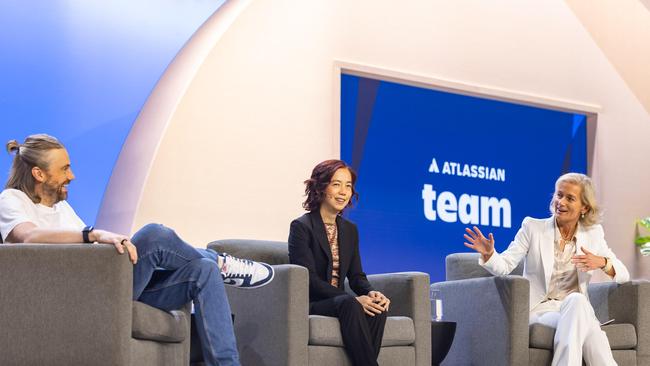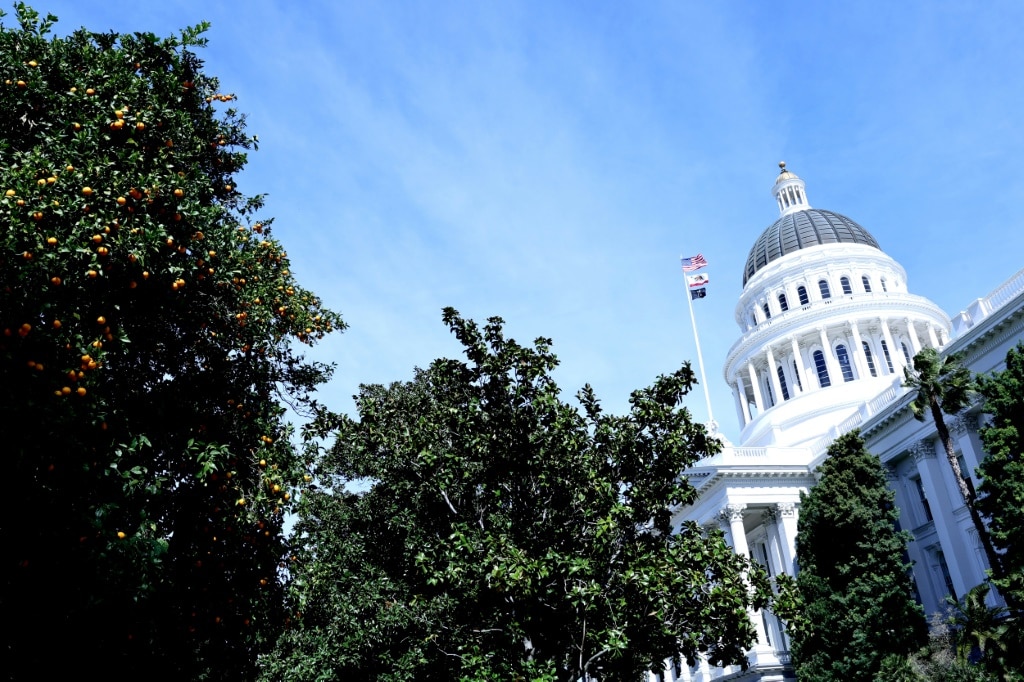AI enhances human creativity and will create jobs, says The Economist’s editor in chief
The Economist’s editor in chief, Zanny Minton Beddoes, believes artificial intelligence will augment human work and creativity rather than replace it.

The Economist editor in chief Zanny Minton Beddoes says artificial intelligence will make journalism and other jobs more efficient and unleash more creativity, declaring she doesn’t believe predictions from the likes of Elon Musk that the much-hyped technology will make human labour obsolete.
Speaking at Atlassian’s annual customer showcase in Las Vegas last week, Minton Beddoes said The Economist had been using AI to test out cover designs and she was optimistic about the future.
“I’m looking forward to an AI assistant that can run all the tedious parts of my life,” she said.
“I have a fabulous office. That’s brilliant. But I just want something that doesn’t need to go on holiday, doesn’t get tired … that can just fix stuff.”
But Minton Beddoes believes AI will augment human work and creativity rather than replacing it.
“Because intelligence becomes effectively much cheaper, you’ll be able to harness the AIs to test out your creative ideas,” she said.
“To give you a concrete example, at The Economist, everything that you read, listen to and watch is still generated by human life, but it will make us much more efficient at doing that.
“So our cover designers for example, when we started having an idea for their coverage, they will get some ideas from AI, they will be interacting with the AI to come up with ideas and that makes them much more productive and much more efficient. In the end … I think it enhances the capability of human creativity.”
Minton Beddoes’s comments are contrary to Mr Musk’s and others, including JPMorgan Chase chief executive Jamie Dimon, who predicts AI will slash the working week to 3½ days in the years ahead. “We are completely convinced the consequences will be extraordinary and possibly as transformational as some of the major technological inventions of the past several hundred years,” Dimon wrote in his annual letter to shareholders.
“Think the printing press, the steam engine, electricity, computing and the internet, among others.”
But Minton Beddoes said, just like previous technological innovations, AI would create new jobs.
“I just simply don’t believe the lump-of-labour fallacy. I don’t think there is a certain number of jobs and there will be nothing left for humans to do,” she said.
“There will be, as there has been with every single technological innovation, some jobs that no longer exist, there will be many where AI transforms that nature of the role … labour augmenting, it helps you. And there will be a whole bunch of new tasks and jobs for humans that we never even thought of yet – producing things that we haven’t even conceived of.”
The rise of AI has been compared to a new industrial revolution, specifically disrupting the roles of knowledge and creative workers – jobs Minton Beddoes said previously were believed to be insulated from automation.
“The interesting thing is that, 10 years ago, there was a view that you had to have STEM skills and you have to be able to code,” Minton Beddoes said.
“Three or four years ago – this was before ChatGPT – it was, ‘Well, actually, the most important thing was creativity.’ That was the one thing that was never going to be automated away. And then suddenly, we get ChatGPT and, ‘Oh my god they can even be creative too.’”
But Minton Beddoes said the rise of AI did not pave the way for a dystopian-like future.
“So what (skills) should our kids have? My sense is some kind of computational skills, and use and understanding thereof; creativity – the things you get from a more liberal arts education are still useful.
“But the most important thing is a kind of openness to experiment, a willingness to keep adapting, a willingness to embrace change, and then above all those things, the ability to communicate, the ability to talk to other humans.
“If there are a bunch of AIs hanging out and going to bars whatever, fine, let them. It’s the ability to work with other people, and oddly that’s something that will need to be increasingly taught because people are becoming in more ways, more atomised. So there is a third skill set in how to be a human, if you will.”
The Australian travelled to Las Vegas as a guest of Atlassian







To join the conversation, please log in. Don't have an account? Register
Join the conversation, you are commenting as Logout